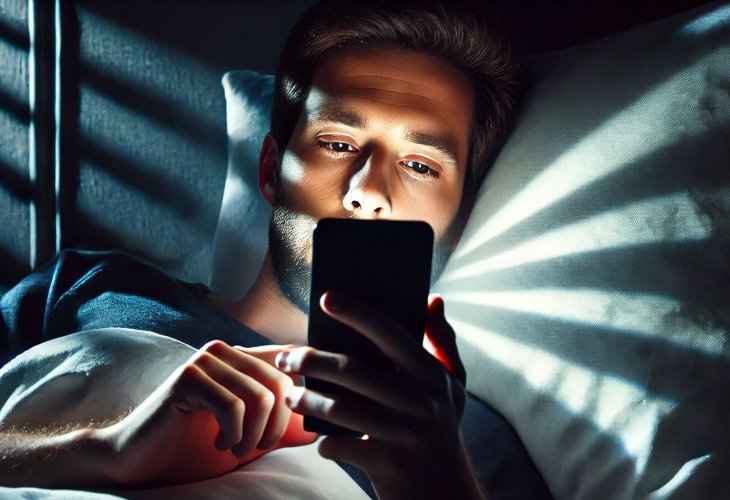How Your Phone Impacts Your Brain Before Sleep: The Truth Revealed
Explore how nighttime tech use disrupts sleep quality and learn strategies to enhance your sleep in the digital age.

In our digital age, it's hard to envision a day without technology. Computers, smartphones, tablets, and televisions have become integral to our daily lives, influencing every aspect, including our sleep. This article explores how using technology before bed impacts sleep quality and offers ways to improve sleep in today's tech-driven world.
How Technology Disrupts Sleep
1. Blue Light's Impact on Sleep
Screens emit blue light, which mimics daylight and affects our brain by suppressing melatonin production, the hormone responsible for regulating sleep. Exposure to blue light before bed can delay falling asleep and degrade sleep quality.
2. Mental Stimulation
Using technology before bed, especially browsing social media or playing online games, can increase mental stimulation, preventing the brain from relaxing and preparing for sleep. Social media content or games can be exciting, stressful, or simply too attention-grabbing.
Once and for All: Experiment Shows the Risks of Sleeping with Your Phone by Your Side
3. Notifications and Alerts
Smartphones and tablets frequently alert users to new messages, emails, and social media activity. These can disturb sleep, even in the middle of the night, causing sudden awakenings and interrupting sleep cycles.
4. Effects on Our Brain
Beyond blue light, our brain needs time to process the day's massive influx of information. Using technology right before sleep prolongs the day, adding extra processing tasks, which makes it harder for the brain to unwind and prepare for quality sleep.
Ways to Improve Sleep in the Digital Age
1. Limit Technology Use Before Bed
To enhance sleep, limit technology use at least an hour before bedtime. Replace tech time with relaxing activities like reading a book, meditating, or listening to calming music.
Rabbi Zamir Cohen: How to Sleep and Earn Rewards for It
2. Use Blue Light Filters
Blue light filters are a convenient solution for those who can't avoid tech before bed. Special glasses or screen filters reduce blue light emission, aiding the brain's relaxation and sleep preparation.
3. Set Quiet Time
Set your smartphone to silent or night mode to eliminate notifications when sleeping. Activating 'do not disturb' mode can also help avoid unnecessary alerts.
4. Create a Sleep-Conducive Environment
Ensure your sleep environment is right, with total darkness, comfortable temperature, and minimal noise. A proper environment signals the brain that it's bedtime, easing the falling asleep process.
5. Establish a Routine
Maintaining a consistent sleep and wake schedule can greatly improve sleep quality. Go to bed and wake up at the same time daily, even on weekends.
6. Practice Relaxation Techniques
Techniques like deep breathing, yoga, and meditation help relax the body and mind for sleep. These practices reduce the stress and tension accumulated throughout the day, making it easier to fall asleep.
Once and for All: Is Charging the Phone Next to the Bed Dangerous?
Rabbi Eyal Ungar - Are You Addicted to Your Phone? Useful Tips and Advice

